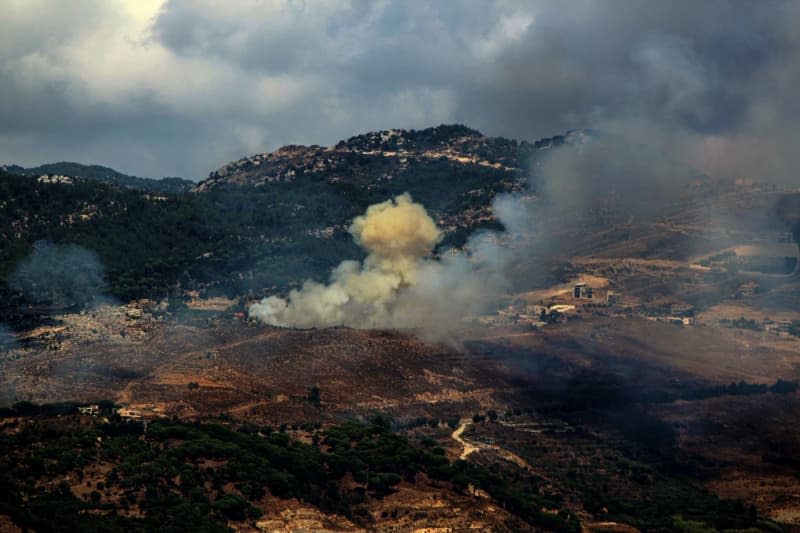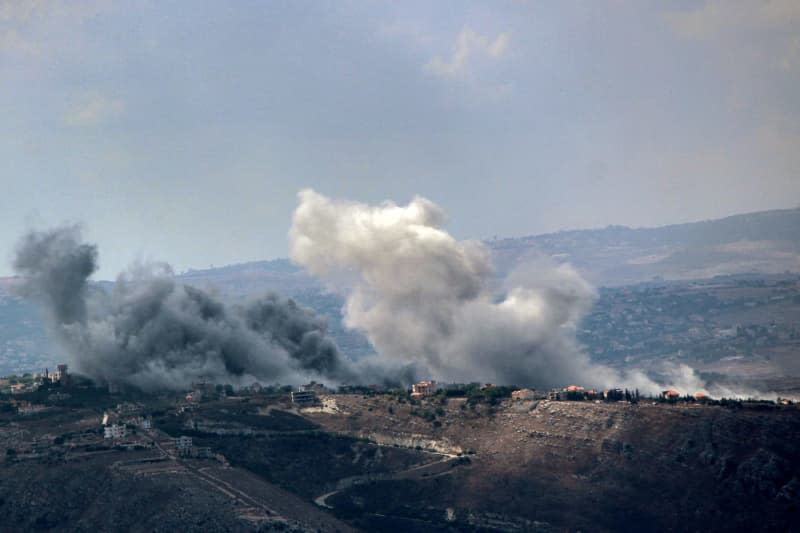Beirut/Tel Aviv – Israel is pursuing its bombing campaign in Lebanon, after several hundred people were killed in massive airstrikes targeting the Hezbollah militia on Monday.
The Israeli military said on Tuesday that “over the past few hours, the [Israeli Air Force] struck Hezbollah terror targets in southern Lebanon, including launchers, terrorist infrastructure sites and buildings in which weapons were stored.”
Hezbollah, which is based in Lebanon but is backed by Iran, has meanwhile launched further attacks on northern Israel.
The Israeli army reported that more than 50 projectiles had been fired from Lebanon at various areas in northern Israel.
“The majority of the projectiles were intercepted and several fallen projectiles were identified in the area,” it said. There were no reports of injuries. Several buildings were damaged.
Hezbollah earlier said it had attacked Israel at least six times since Tuesday morning with Fadi-1 and Fadi-2 rockets.
Among other things, it said it had attacked the Israeli military airfield Megiddo west of the city of Afula and again the Ramat David military base near Haifa.
Deadliest day in Lebanon
Almost 500 people were killed and more than 1,600 injured across southern and eastern Lebanon in the Israeli strikes on Monday, the Lebanese Health Ministry said, in the deadliest such attack in decades.
As the war in Gaza approaches its first anniversary, the long-feared escalation of the Middle Eastern conflict appeared to have arrived, with Lebanese authorities reporting at least 492 people dead, including 35 children, and another 1,645 wounded.
Israel said it had carried out more than 1,300 attacks on targets in Lebanon, including one in the capital Beirut, in what Prime Minister Benjamin Netanyahu described as a pre-emptive strike aimed at eliminating Hezbollah’s weaponry.
Netanyahu said that Hezbollah had concealed its rockets directed at Israeli cities in private living rooms. “To defend our people against Hezbollah strikes, we must take out these weapons,” he said on Monday.
Israeli citizens across the country must prepare for potential counter-attacks from the Hezbollah militia, the army’s Homefront Command said on Tuesday.
A spokesman told the online news provider ynet that the country’s residents should be prepared to seek shelter in the event of rocket attacks.
The UN observer mission on the Israel-Lebanon border, called the
United Nations Interim Force in Lebanon (UNIFIL), said it would temporarily suspend its patrols due to the increased danger for its personnel.
The risk posed by the mutual shelling between Israel’s army and the Lebanese Hezbollah militia currently makes it necessary for the so-called “Blue Helmets” to remain in their bases, a UN spokesman told journalists on Monday.
Southern Lebanese fear further airstrikes
Thousands of families who fled southern Lebanon after the sudden Israeli bombing campaign have filled hotels across the capital Beirut.
“We escaped with only the clothes on our back and our essentials in a small bag, and my brother who lives abroad booked two rooms for us in a hotel,” Fatima Ezzeddine told dpa on Tuesday.
“The airstrikes targeted a building next to our house in Housh, near Tyre, and the house received massive damage and some people were killed and injured in our building,” she said.
People escaping the strikes in southern Lebanon were still flocking into the capital on Tuesday, with traffic jams leading into the south of Beirut.
“This is a disaster,” Mustafa told dpa. He came from Sidquine, which was badly hit by the airstrikes, and found a room in a Beirut hotel.
“I do not know who to blame, but us citizens are paying a deadly price.”











